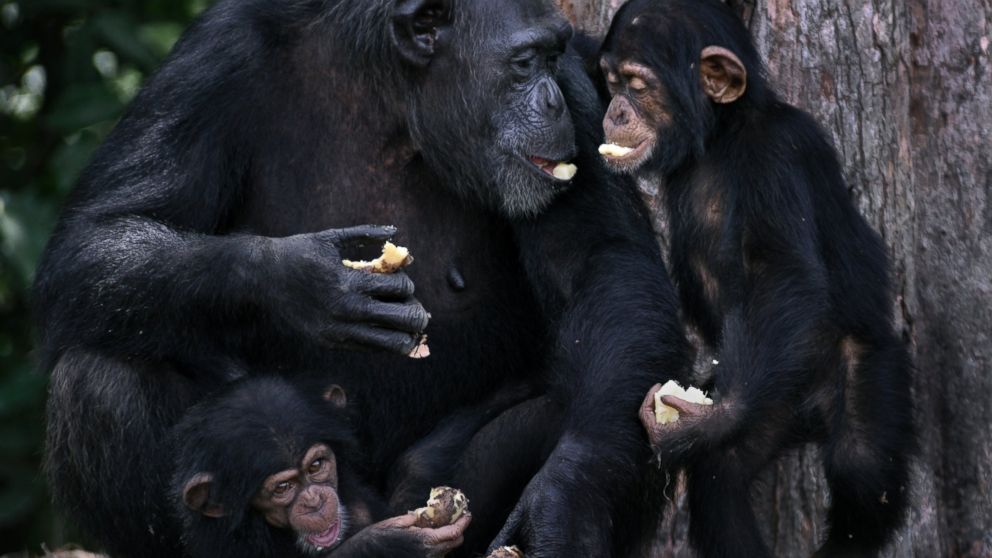Lab Chimps 'Abandoned' on African Island, Activists Say
Charity that experimented on chimps says it has to focus on saving human lives.

— -- Dozens of chimpanzees used in experimental labs in Africa by an American health charity are now living on their own on African islands, where activists say their previous lives in cages have not prepared them to survive in the wild.
The New York Blood Center (NYBC) began experimenting on chimpanzees in collaboration with the Liberian government in the 1970s, before the primates were retired in the mid-2000s to islands in Liberia with financial assistance from the NYBC to aid the chimps' survival. But in 2015 the center discontinued its funding to the animals care, according to the Humane Society of the United States (HSUS), which the HSUS says has put all the chimps at risk.
"The New York Blood Center abandoned dozens of chimpanzees after the organizations made millions on them," Wayne Pacelle, president and CEO of HSUS, said. "It's an alarming fact pattern, but it's not too late for the charity to get on the right side of this issue and fulfill its responsibilities to animals who deserve to live out the remainder of their lives in peace and security."
Earlier this week the HSUS and the Richardson Center for Global Engagement, founded by former congressman and former New Mexico governor Bill Richardson, held a news conference to renew public efforts to get the blood center to renew its funding.
The NYBC has maintained that it has already spent millions on the chimps since its deal with the Liberian government ended in the mid-2000s and can no longer afford to divert money from essential programs that save thousands of human lives. In response to questions from ABC News, NYBC Vice President Robert Purvis slammed the HSUS and said the NYBC tried to work with the group for months and were confronted with requests that "have nothing to do with NYBC's original involvement in Liberia."
Purvis said the NYBC "repeatedly" reached out to the animal rights community and the Liberian government "in an attempt to assist in a long-term solution for Liberia's chimps." "NYBC was ignored," he said.
"We remain willing to work with any legitimate animal rights organizations that seeks our help. But in a time when NYBC is confronting new threats to our blood supply like Babesia and the Zika virus, not to mention terrorism and natural disasters, we could not divert NYBC's resources indefinitely from our mission: the collection and distribution of blood and the advancement of research to discover lifesaving products that will benefit patients worldwide," Purvis said.
The NYBC also noted that the chimpanzees are owned by the Liberian government, and said that contrary to Pacelle's remarks, the center has not profited off the experiments on the animals, since the NYBC is a non-profit organization. Any proceeds received as a result of research is reinvested in more "research and discovery," the NYBC says on its website.
The experimentation with the chimps in Liberia, the NYBC said, "was essential to the development of a Hepatitis vaccine."
The HSUS began rallying against the blood center last year, saying it collected hundreds of thousands of signatures on a petition to urge the blood center to recommit financial resources to care for the chimps. The HSUS estimates that nearly $20 million is needed to provide care for the animals for the rest of their lives.
Earlier this month the HSUS and Richardson Center sent letters to some of the NYBC's biggest donors, urging them to cease support for the charity "unless the organization steps forward and takes responsibility for the long-term financial support of these chimpanzees." In the meantime, this week the Richardson Center announced a wildlife grant for HSUS to support the Liberian government to provide interim long-term care for the chimps, with the ultimate goal of garnering enough support to permanently establish a wildlife sanctuary and to "hold the center accountable for abandoning these chimps," said Richardson.




